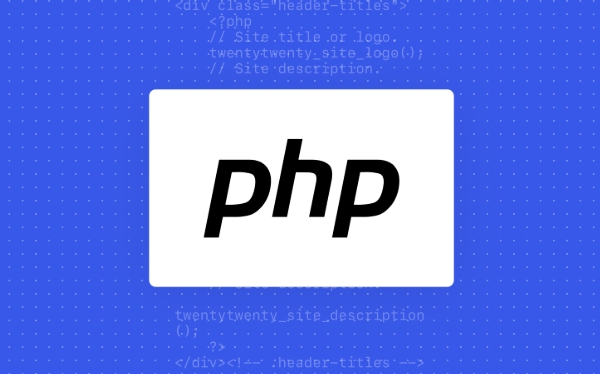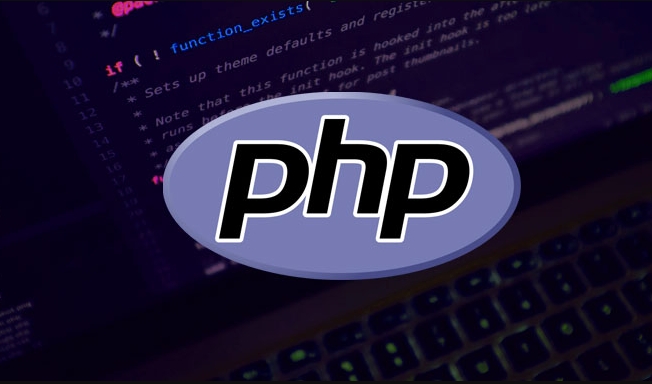Implementing case-insensitive search for regular expressions in PHP is mainly done by using the "i" modifier. 1. Adding the "i" modifier to the regular expression, such as /hello/i, can match any form of upper and lower case strings; 2. PHP's functions such as preg_match, preg_match_all, and preg_replace all support this modifier to ensure that the keywords can be recognized no matter what form they appear; 3. In actual applications, for example, when keyword highlighting or filtering, you need to combine preg_quote to prevent special characters from errors, and use $0 to match content; 4. When processing non-English characters, you should ensure that the string is UTF-8 encoding, and add the "u" modifier after the regular expression to correctly identify Unicode characters, such as /café/iu. Mastering these key points can effectively deal with most case-insensitive regular expression requirements.

It is actually quite common to do case-insensitive search for regular expressions in PHP. For example, if you want to match a keyword, whether it is uppercase, lowercase or mixed, then you can easily do it by adding the "i" modifier.

Use the i modifier to achieve case-insensitive
PHP regular functions (such as preg_match , preg_match_all , and preg_replace ) all support modifiers, where i is used to enable case-insensitive mode.

For example:
$pattern = '/hello/i';
$text = 'Hello World';
if (preg_match($pattern, $text)) {
echo 'Matching successfully';
} In this code, although $text is "Hello" (capitalizes the initial letter), it can still match hello because /i is used. Regardless of whether the target string is HELLO , hELLo or other forms, it can be recognized.

Note: Modifiers should be added after the slash at the end of the regular expression and cannot be missed.
Common scenarios: keyword highlighting or filtering
Sometimes we need to look for certain keywords in a paragraph of text and do not care about upper and lower case, such as search highlighting or blocking word filtering.
A simple highlighting example:
$keyword = 'apple'; $text = 'I ate an Apple today. Apples are delicious.'; $pattern = '/' . preg_quote($keyword, '/') . '/i'; $result = preg_replace($pattern, '<strong>$0</strong>', $text); echo $result;
The output result will be:
I ate an <strong>Apple</strong> today. <strong>Apples</strong> are delicious.
Here are a few key points:
- Use
preg_quoteto avoid errors in keywords with special characters - Mode plus
iimplementation is case-insensitive -
$0means the matching content itself
Pay attention to coding issues when supporting multilingual
If you are dealing with non-English content, such as Chinese or accented Latin characters, remember to make sure the string is UTF-8 encoded and add the u modifier to the regular expression:
$pattern = '/café/iu';
This not only does not distinguish between case and lower- and lower- and lower- and lower- and lower- and lower- and lower- and lower- and lower- and lower- and lower- and lower- and lower- and lower- and lower- and lower- and lower- and lower- and lower- and lower- and lower- and lower- and lower- and lower- and lower- and lower- and lower- and lower- and lower- and lower- and lower- and lower- and lower- and lower- and lower- and lower- and lower- and lower- and lower- and lower
Basically that's it. By mastering the combination of the i modifier and the basic preg_* function, you can deal with most case-insensitive regular needs.
The above is the detailed content of php regex case insensitive search. For more information, please follow other related articles on the PHP Chinese website!

Hot AI Tools

Undress AI Tool
Undress images for free

Undresser.AI Undress
AI-powered app for creating realistic nude photos

AI Clothes Remover
Online AI tool for removing clothes from photos.

Clothoff.io
AI clothes remover

Video Face Swap
Swap faces in any video effortlessly with our completely free AI face swap tool!

Hot Article

Hot Tools

Notepad++7.3.1
Easy-to-use and free code editor

SublimeText3 Chinese version
Chinese version, very easy to use

Zend Studio 13.0.1
Powerful PHP integrated development environment

Dreamweaver CS6
Visual web development tools

SublimeText3 Mac version
God-level code editing software (SublimeText3)
 PHP Variable Scope Explained
Jul 17, 2025 am 04:16 AM
PHP Variable Scope Explained
Jul 17, 2025 am 04:16 AM
Common problems and solutions for PHP variable scope include: 1. The global variable cannot be accessed within the function, and it needs to be passed in using the global keyword or parameter; 2. The static variable is declared with static, and it is only initialized once and the value is maintained between multiple calls; 3. Hyperglobal variables such as $_GET and $_POST can be used directly in any scope, but you need to pay attention to safe filtering; 4. Anonymous functions need to introduce parent scope variables through the use keyword, and when modifying external variables, you need to pass a reference. Mastering these rules can help avoid errors and improve code stability.
 How to handle File Uploads securely in PHP?
Jul 08, 2025 am 02:37 AM
How to handle File Uploads securely in PHP?
Jul 08, 2025 am 02:37 AM
To safely handle PHP file uploads, you need to verify the source and type, control the file name and path, set server restrictions, and process media files twice. 1. Verify the upload source to prevent CSRF through token and detect the real MIME type through finfo_file using whitelist control; 2. Rename the file to a random string and determine the extension to store it in a non-Web directory according to the detection type; 3. PHP configuration limits the upload size and temporary directory Nginx/Apache prohibits access to the upload directory; 4. The GD library resaves the pictures to clear potential malicious data.
 Commenting Out Code in PHP
Jul 18, 2025 am 04:57 AM
Commenting Out Code in PHP
Jul 18, 2025 am 04:57 AM
There are three common methods for PHP comment code: 1. Use // or # to block one line of code, and it is recommended to use //; 2. Use /.../ to wrap code blocks with multiple lines, which cannot be nested but can be crossed; 3. Combination skills comments such as using /if(){}/ to control logic blocks, or to improve efficiency with editor shortcut keys, you should pay attention to closing symbols and avoid nesting when using them.
 How Do Generators Work in PHP?
Jul 11, 2025 am 03:12 AM
How Do Generators Work in PHP?
Jul 11, 2025 am 03:12 AM
AgeneratorinPHPisamemory-efficientwaytoiterateoverlargedatasetsbyyieldingvaluesoneatatimeinsteadofreturningthemallatonce.1.Generatorsusetheyieldkeywordtoproducevaluesondemand,reducingmemoryusage.2.Theyareusefulforhandlingbigloops,readinglargefiles,or
 Tips for Writing PHP Comments
Jul 18, 2025 am 04:51 AM
Tips for Writing PHP Comments
Jul 18, 2025 am 04:51 AM
The key to writing PHP comments is to clarify the purpose and specifications. Comments should explain "why" rather than "what was done", avoiding redundancy or too simplicity. 1. Use a unified format, such as docblock (/*/) for class and method descriptions to improve readability and tool compatibility; 2. Emphasize the reasons behind the logic, such as why JS jumps need to be output manually; 3. Add an overview description before complex code, describe the process in steps, and help understand the overall idea; 4. Use TODO and FIXME rationally to mark to-do items and problems to facilitate subsequent tracking and collaboration. Good annotations can reduce communication costs and improve code maintenance efficiency.
 Quick PHP Installation Tutorial
Jul 18, 2025 am 04:52 AM
Quick PHP Installation Tutorial
Jul 18, 2025 am 04:52 AM
ToinstallPHPquickly,useXAMPPonWindowsorHomebrewonmacOS.1.OnWindows,downloadandinstallXAMPP,selectcomponents,startApache,andplacefilesinhtdocs.2.Alternatively,manuallyinstallPHPfromphp.netandsetupaserverlikeApache.3.OnmacOS,installHomebrew,thenrun'bre
 How to access a character in a string by index in PHP
Jul 12, 2025 am 03:15 AM
How to access a character in a string by index in PHP
Jul 12, 2025 am 03:15 AM
In PHP, you can use square brackets or curly braces to obtain string specific index characters, but square brackets are recommended; the index starts from 0, and the access outside the range returns a null value and cannot be assigned a value; mb_substr is required to handle multi-byte characters. For example: $str="hello";echo$str[0]; output h; and Chinese characters such as mb_substr($str,1,1) need to obtain the correct result; in actual applications, the length of the string should be checked before looping, dynamic strings need to be verified for validity, and multilingual projects recommend using multi-byte security functions uniformly.
 Learning PHP: A Beginner's Guide
Jul 18, 2025 am 04:54 AM
Learning PHP: A Beginner's Guide
Jul 18, 2025 am 04:54 AM
TolearnPHPeffectively,startbysettingupalocalserverenvironmentusingtoolslikeXAMPPandacodeeditorlikeVSCode.1)InstallXAMPPforApache,MySQL,andPHP.2)Useacodeeditorforsyntaxsupport.3)TestyoursetupwithasimplePHPfile.Next,learnPHPbasicsincludingvariables,ech






